Top tips for settling (back) into study
15 Feb 2024
Are you making the transition from high school to university? Or maybe returning to study after a long break? Even just getting back into the swing of things after the summer? Whether you are embarking on a new academic journey or returning to the grind after a break, settling into study can be both exhilarating and daunting.
CUC Bass Coast is here to support you through this phase of your learning journey. In this guide, we’ll explore the essential steps to help you settle seamlessly into your study routine.
Preparation
Tip 1: Locate resources and update your supplies
Important course materials will be located online. Log in to your university portal where you’ll find links to your courses and downloadable resources. If you do this early, you’ll know what to expect over the semester.
Also take stock of your supplies. Do you have all the necessary textbooks, notebooks, and stationery? Consider incorporating digital tools as well to enhance your study experience.
Tip 2: Note your key dates
It is important to make note of each assignment due date for your classes. This will help you work out when to begin work on them so that you have enough time to be successful. Noting important dates down early will also alert you if you have a busy week approaching so you can prepare to make any changes to your schedule.
Exam dates are important too. They might be completed as a take-home assessment, or they might be supervised. Even online exams might be invigilated by using a program that monitors your screen and your webcam. We at CUC can help you if you want to use one of our breakout spaces and/or technology. Let us know and we can book you the perfect space with reliable Wi-Fi and zero interruptions.
Tip 3: Organise your study space
Creating an effective, dedicated study environment is paramount. This might be possible at home – a quiet corner where distractions are minimised. However, this is not an option for everyone (families can be a huge distraction!). So, especially if you cannot study at home, come down to CUC Bass Coast for a dedicated study space. Whatever place you choose, ensure it is well-lit, organised, and conducive to focused learning.

Time Management
Tip 4: Create a schedule
Craft a realistic schedule that accommodates your classes, study sessions, work, and personal time. Study can be incredibly flexible, but it is always a good idea to block out time for it, just as you would any other commitment.
You might be wondering: how can I balance work commitments with study? This is a common concern our students face. More often, students find success by either studying or working part time. This might mean you take a little longer to complete your course, but the positives of part-time study generally outweigh this concern. Know that you can reduce your study load without incurring fees if you decide before census day – so put that date in your diary too!
Tip 5: Set realistic goals
Goals are personal to you. You might be aiming for High Distinctions across the board, or you might be aiming to protect your wellbeing and not put too much pressure on yourself. It all depends on your lifestyle and what YOU want to get out of study – there isn’t a right or wrong approach here. Whatever your goals are, remember to break down larger goals into manageable tasks and be realistic about what you can accomplish.
Getting into the Right Mindset
Tip 6: Managing stress
University can be a stressful experience, especially when you are returning after a break. Try to take breaks and integrate mindfulness practices into your daily routine to alleviate stress before it takes a strong hold. A calm mind not only helps with your mental wellbeing, but also impacts your academic results by enhancing focus and productivity.
You can also access university staff or initiatives to help maintain a good mindset during the study period. Establishing a positive relationship with your tutors can help you down the track if you need to reach out for extra help or an extension on your assignment. Most institutions will also have counselling services, crisis help lines, support groups, workshops focused on stress management and mental health, or other resources to help you through stressful times when they do arise.
Tip 7: Seeking out services
In addition to helping you with the stressors of study, most universities have course advisors, tutors, career services, health services, financial aid, disability support, and student clubs. Check your university’s website for details and reach out to them at the start of the year to connect.
Also remember that CUC Bass Coast is here to assist you through your learning journey. We can connect you with the right staff at your university, but also provide student services of our own, like technological assistance, learning skills advice, and all kinds of wrap-around support.

Finally, remember that settling into study is not just a task — it’s a skill to be practised. Embrace the challenges, stay organised, and cultivate a resilient mindset to navigate the twists and turns of the semester ahead. Best of luck!

0 Comments
There are currently no comments, be the first to leave one